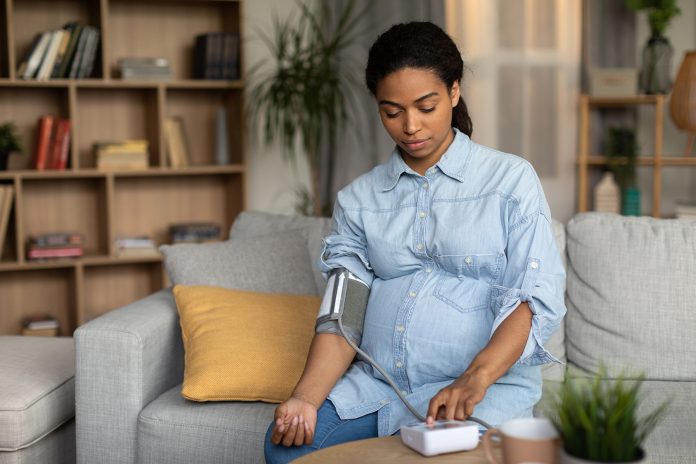Natalie Duffield explains how Inhealthcare – a UK leader in digital health and remote monitoring – is helping NHS organisations to develop and deliver technologies that can help close the gender gap in health outcomes and provide fair access to women’s clinical services
Research shows women spend a significantly greater proportion of their lives in ill health and disability compared with men and are under-represented in important clinical trials. In addition, not enough focus has been placed on women-specific topics like miscarriage, endometriosis or menopause.
Addressing the gender gap could add ‘years to life and life to years’ and potentially boost the global economy by $1 trillion by 2040, according to the McKinsey Health Institute. The consultancy argues that women’s health is not a standalone issue; it is a cornerstone of social wellbeing and progress.
The UK has the greatest gender gap in health
The problem is particularly acute in the UK, which has the greatest gender gap in the G20, according to research published by the House of Lords. Summarising the state of affairs, the Royal College of Obstetricians and Gynaecologists warned that women cannot always find accurate information; the NHS is largely an intervention service, not a prevention service; opportunities are frequently missed to empower girls and women, and many women’s healthcare services are fragmented and difficult to access.
According to the Yorkshire-based author and activist Caroline Criado Perez, these issues are deep-rooted and based on attitudes that date back to ancient times. ‘Most of recorded human history is one big data gap,’ she writes in her best-selling book Invisible Women. Criado Perez argues the medical system is systematically discriminating against women, leaving them misunderstood, mistreated and misdiagnosed.
Empowering women’s health with digital services
The government has promised to improve how the health and care system listens to female voices and boost health outcomes for women and girls. Its long-term ambitions include greater use of technologies to empower women while giving fair access to clinically safe technologies, whether diagnostic, therapeutic or preventive.
Much can be done here and now to right these wrongs.
We have spent the last decade developing and deploying digital health services designed to break down barriers between people and the places where healthcare is traditionally delivered and change how care is given and received.
Take our gestational diabetes service, offered to expectant mothers across several NHS trusts in northern England. The condition can cause problems during pregnancy and after birth, but risks can be reduced if detected early and well-managed. Inhealthcare empowers women to self-manage their condition at home and helps nurses give the right treatment at the right time. It replaces a manual process, which is based on paper diaries and would often get lost and rely on often tired mums-to-be remembering to take readings.
Our service for postnatal hypertension tackles a similar issue. The condition affects up to one in ten women and can lead to serious complications such as stroke in later life. The service is simple: the patient takes a blood pressure reading at home and automatically relays the readings to the clinical team. The frequent monitoring helps nurses keep an eye on patients, who, in turn, have to attend fewer appointments in person. Blood pressure readings taken at home tend to be more accurate than those in the clinic – avoiding the dreaded white coat syndrome.
Technology enables timely intervention, which can be applied to multiple conditions
According to the British Heart Foundation, women are dying needlessly from heart attacks in the UK or not making as good a recovery as they could because they do not receive the same care and treatment as men. We have partnered with FibriCheck, a medically certified app for heart health, to help combat cardiovascular disease. By scaling up preventative checks, we believe NHS organisations can transform detection and condition management for people with atrial fibrillation, high blood pressure and high cholesterol, the main causes of the disease.
When it comes to mental health, women are three times more likely than men to experience problems, according to the Mental Health Foundation. In London, we have launched a new tech-enabled programme to target the disparity in physical health outcomes for people living with severe mental illness who tend to die 15-20 years sooner than the general population. The programme extends annual physical health check pathways to reach more individuals in convenient locations such as wellbeing centres, church halls, community centres and even their own homes.
Irritable bowel syndrome is twice as common in women than in men and can seriously reduce the quality of life for sufferers. In Scotland, we launched a new app to help people track their symptoms over time, identify any changes and access trusted information to help them understand and manage their condition. Users can request extra support from dietitians via the app when needed. The service reduces the time for people to receive specialist advice and support from weeks to days.
Like all our applications, it is built around the needs of people so they can access help and support at a time convenient to them.
These are just some examples of services that aim to improve outcomes for women. They deliver care beyond traditional healthcare settings. They are available and scalable. They generate data that can plug gaps and better inform the allocation of NHS funding to address the gender inequalities that exist so starkly. And they show how digital health can open up access to health services and close the gender gap in health.

This work is licensed under Creative Commons Attribution-NonCommercial-NoDerivatives 4.0 International.











